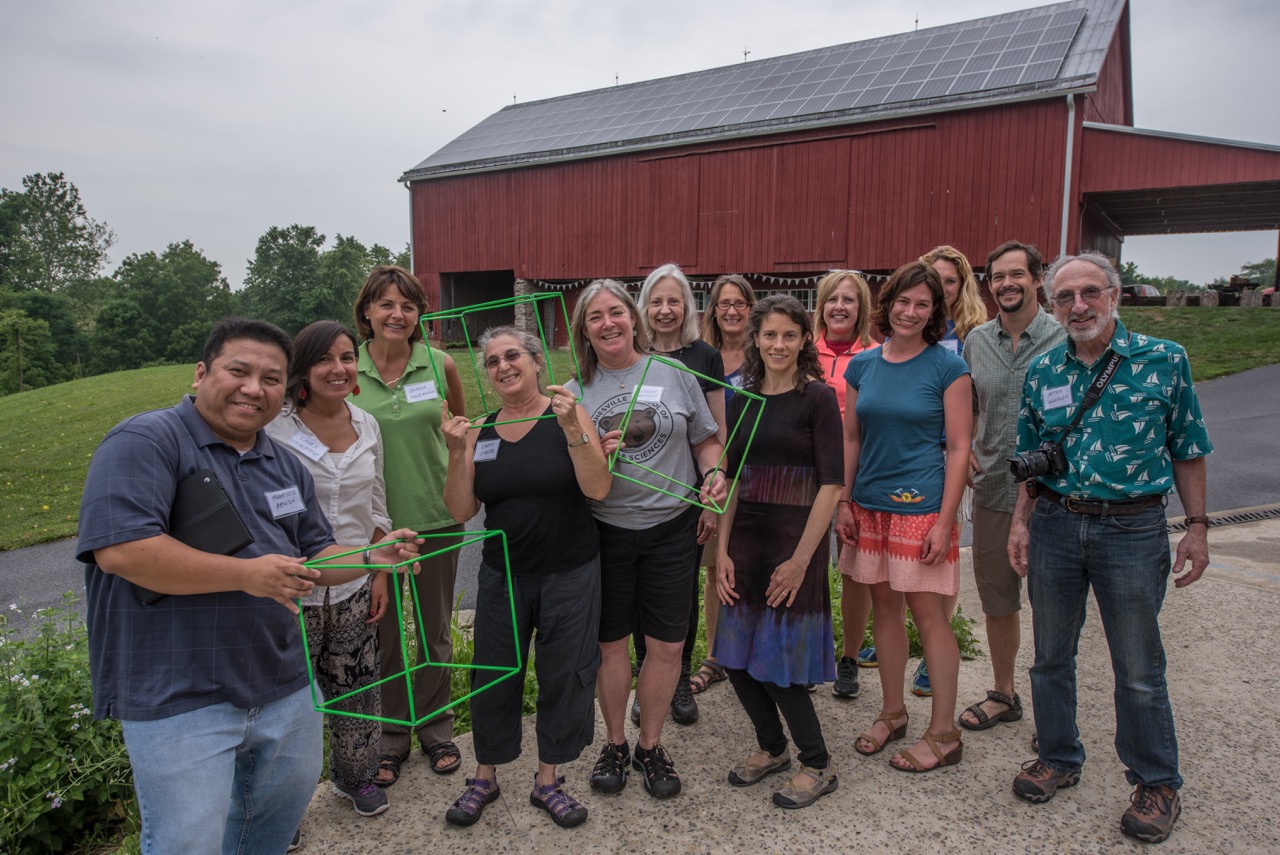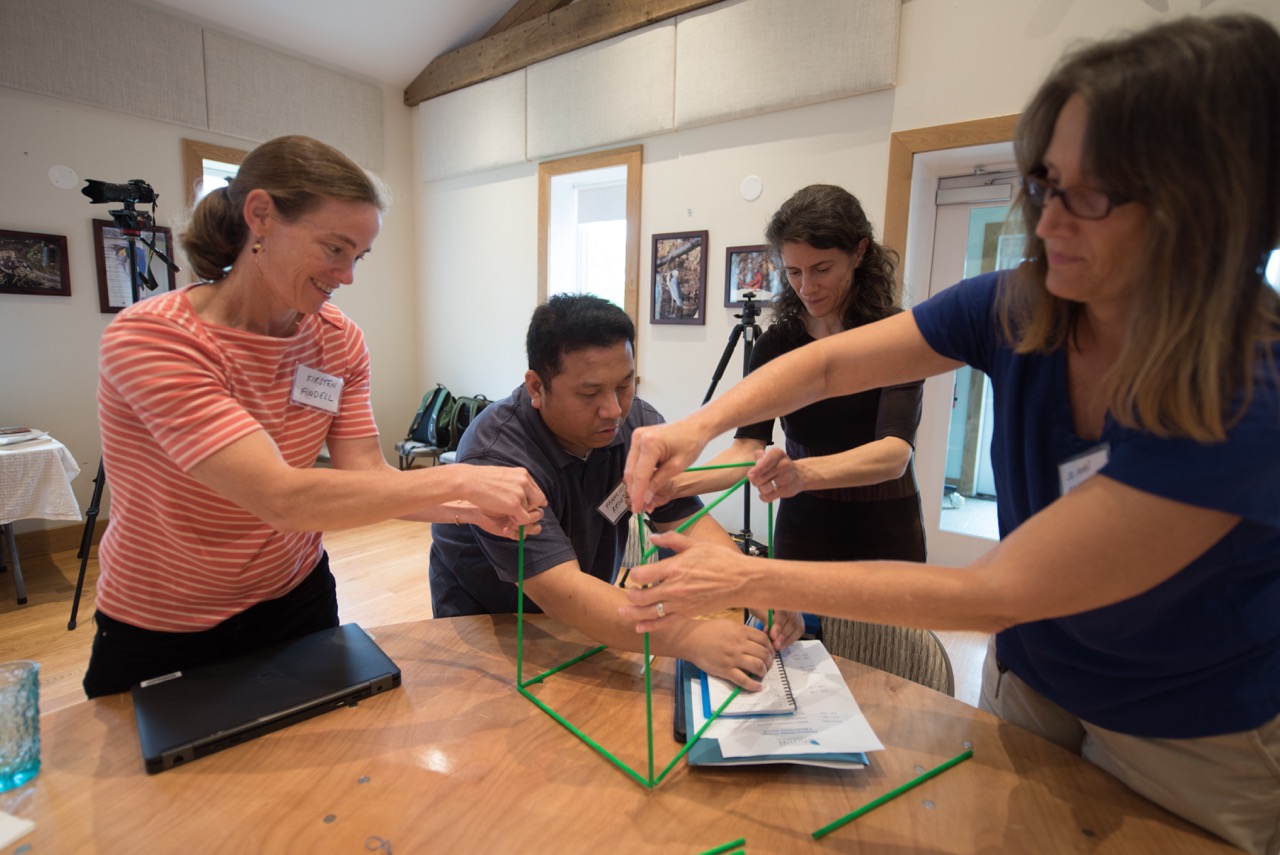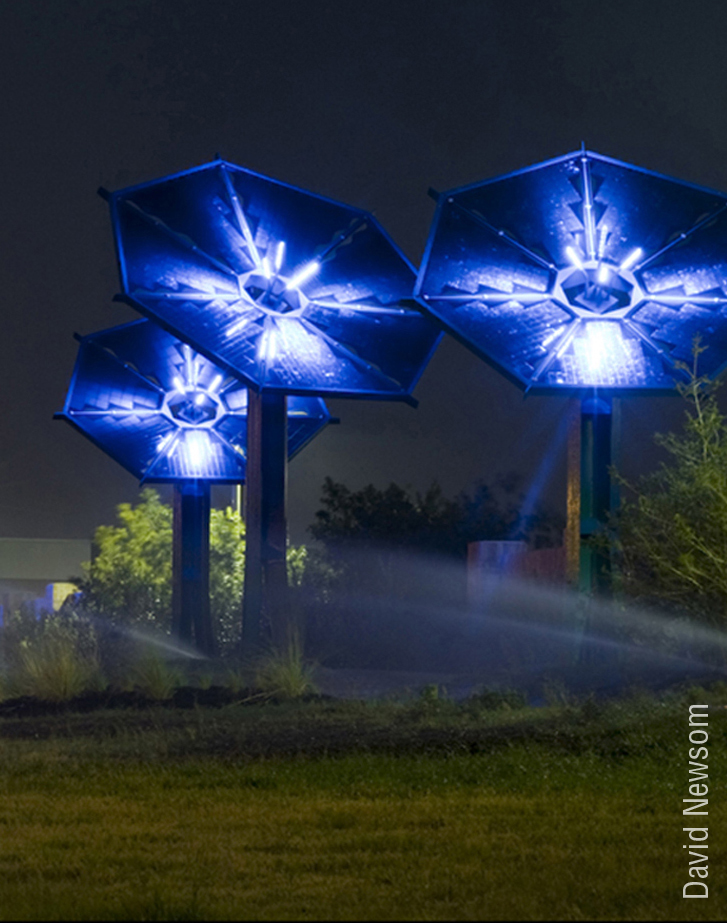Teachers from Maryland, Virginia, and Washington, DC convened at the idyllic Fox Haven Organic Farm and Learning Center in Jefferson, MD on June 27, 2016 for Honoring the Future’s day-long multidisciplinary workshop on teaching climate change. Entitled “PUT SOME STEAM IN YOUR STEM,” the workshop featured leading national experts from science, art, law and policy to present the latest information on climate change, answer teachers’ questions, and spark curriculum planning on integrating the teaching of climate change into middle and high school science, math, language arts, and art classes.
Honoring the Future Director Fran Dubrowski and Arts Advisor Peter Handler opened the program, discussing art as a means of understanding and addressing climate change.
Dr. Perry Sheffield, Assistant Professor of Pediatrics and Preventive Medicine at Mount Sinai School of Medicine, outlined the potential human health impacts of unchecked climate change.
Hydroclimatologist Dr. Kirsten Findell of the National Oceanic and Atmospheric Administration (NOAA) Geophysical Fluid Dynamics Laboratory presented the science of global climate modeling, with particular attention to questions frequently asked by the public.


The program concluded with a field trip to explore biodiversity in the nearby creek. Led by Dr. Christopher Meyer, Research Zoologist & Curator, Smithsonian National Museum of Natural History, this portion of the program introduced teachers to the Biocube, an exciting (and inexpensive) new teaching tool that guides students to identify and appreciate biodiversity. Students may also use the tool to be “citizen scientists,” entering findings in a global database. Dr. Meyer showed how the students’ scientific findings lend themselves easily to presentation as art, using the current “Life in One Cubic Foot” exhibition at the Smithsonian National Museum of Natural History as one of several models. More information about the project can be found at the Smithsonian’s Q?rius website: http://qrius.si.edu/biocube.
Honoring the Future convened the workshop because a major national study shows teachers are hungry for more information about this subject. Increased interest stems, in part, from the new Next Generation Science Standards, which require middle and high school students to demonstrate an understanding of climate change and its impacts. The Next Generation Science standards – a multistate effort to improve science education, stimulate student interest in science, and give students an up-to-date science education that prepares them for college, careers, and citizenship – have been adopted by 16 states, including Maryland and the District of Columbia, and broadly examined nationwide.

